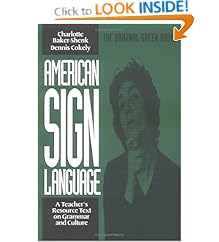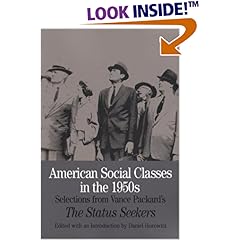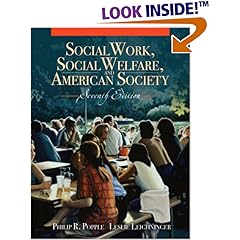This blog contains the description on the phenomena in language, society, and culture
Showing posts with label American Society. Show all posts
Showing posts with label American Society. Show all posts
Monday, October 27, 2008
A Native American Encyclopedia: History, Culture, and Peoples
Dispelling myths, answering questions, and stimulating thoughtful avenues for further inquiry, this highly absorbing reference provides a wealth of specific information about over 200 North American Indian groups in Canada and the United States. Readers will easily access important historical and contemporary facts about everything from notable leaders and relations with non-natives to customs, dress, dwellings, weapons, government, and religion. This book is at once exhaustive and captivating, covering myriad aspects of a people spread across a continent.
Divided into ten geographic areas for easy reference, this work illustrates each Native American group in careful detail. Listed alphabetically, starting with the tribal name, translation, origin, and definition, each entry includes significant facts about the group's location and population, as well as impressive accounts of the group's history and culture. Bringing entries up-to-date, Barry Pritzker also presents current information on each group's government, economy, legal status, and land holdings. Whether interpreting the term "tribe" (many traditional Native American groups were not tribes at all but more like extended families) or describing how a Shoshone woman served as a guide on the Lewis and Clark expedition, Pritzker always presents the material in a clear and lively manner.
In light of past and ongoing injustices and the momentum of Indian and Inuit self-determination movements, an understanding of Native American cultures as well as their contributions to contemporary society becomes increasingly important. A magnificent resource, this book liberally provides the essential information necessary to better grasp the history and cultures of North American Indians.
Tuesday, October 14, 2008
American Sign Language Green Books, A Teacher's Resource Text on Grammar and Culture (American Sign Language Series)
This book is designed for a teacher as part of the "Green Books" American Sign Language series; however, it is a very useful guide to ASL Grammar and Culture for anyone studying American Sign Language seriously (I, myself, am not a teacher, but have a copy of the book).
I was introduced to the book when I first began learning sign language, and it was very confusing to me. I would have benefited, at the time, much better from an ASL dictionary or simpler sign book. My recommendation to those of you who have just begun learning (or would like to learn) ASL would be NOT to buy this book just YET! Start with something less daunting and sophisticated (after all, it is designed for those already familiar with ASL and preparing a class curriculum).
What the book will give you is an excellent explanation of the sociolinguistic nature of American Sign Language--something you typically will not receive from a ASL Dictionary. For example: how sentences are structured, topicilization, rhetorical questions, relative clauses, expression of time, pronominalization, subject and object usage, the use of classifiers, locatives ... to name a few.
All in all, this is a terrifically detailed, well researched, informative and valuable book; yet, not for a beginning student.
Sunday, August 31, 2008
American Social Classes in the 1950s: Selections from Vance Packard's The Status Seekers (The Bedford Series in History and Culture)
Review: By Christopher W. Chase "Christopher W. Chase"
Vance Packard's "The Status Seekers" is a well known compendium and analysis of the nature and development of social classification during the 1950's-a period marked by explosive growth of the U.S. economy, especially among young white families. The thesis of the book, as explained by Packard, is that rather than the creation of a largely classless society in which "all" were gaining the benefits of democratic capitalism, the creation of an "affluent" society simply highlighted and created new stratifications, both horizontal, and vertical, of social class based on race, religion, behavioral and consumptive practices.
Packard sought to demonstrate his thesis by compiling and synthesizing then current sociological studies, as well as conducting informal interviews among members of various economic classes, policy experts, and professionals in different cities, towns, and states. There is little in the book that represents original thought, but the form, promotion and style of the book made it a best-selling nonfiction work among the general public.
It was precisely these qualities that drew so much ire from many critics, especially those drawn from the circles of New York intelligentsia-it was often attacked for its own pretense to provinciality and romanticism of an agrarian, frontier past. The Status Seekers nonetheless stands as a significant work in American Studies, precisely because of its ability to bring scholarly information, especially regarding the vertical stratifications of race and religion, to bear on the nature of class in America, and stands out as a dissenting voice in the consensus ideology and politics of containment that ruled public discourse at the time. Other criticisms of the book, such as the charge that it portrayed status seeking voyeuristically and hypocritically--- insofar as buyers used it to advance their own status---- are charges more appropriate to the willingness of the buying public to commodify and use as a tool any weapon in the fight to gain greater status. While books are meant to be read, conveying information about such timely topics is bound to get caught up in the politics of the very phenomenon studied. That is not Packard's fault.
There are other criticisms, more from a contemporary standpoint, that could be made of Packard's work. It is true that he took from conservative liberalism a predisposition to see affluence as the problem, rather than the lack of it for so many people within the society he studied. It is also true that he played more to the prejudices of the day, especially regarding race and gender, and failed to aggressively question some of the roots of the problems he sought in terms of these prejudices. But the point of his text was not to make a critique of American institutions as such, but rather the interpretations of those institutions as held and manipulated by consumers for their own benefit.
On the one hand, we should chalk this up to Packard's Cold War liberalism. Moreover, as pointed out in the excellent introductory essay by Daniel Horowitz, Packard was once a socialist radical, but experienced the realpolitik of Stalin's Soviet Union negotiations with Hitler, and correctly understood the USSR as a form of state capitalism (much like C. L. R. James). It would be worst sort of ex post facto presentism to hold these sorts of criticisms too hard against Packard.
Christopher W. Chase - PhD Fellow - Michigan State University
Saturday, August 30, 2008
Class: A Guide Through the American Status System
Review: By Renee Thorpe
Bitingly witty and embarassingly well focused look at the main classes within American society.
Yes, there is an American aristocracy, but they aren't driving around in Ferraris or living in Beverly Hills. There is even a sort of aristocracy amongst the working class people whom Fussell generally refers to as proles.
Fussell's sharp eye has found and catalogued an amazing array of signs that indicate class in America. Try to spot these signs at your next social gathering, or even subject your own living room to the survey at the end of the book (frighteningly accurate way to determine one's class)!
This is a book based on pigeon-holing people, and that is probably what most annoyed readers can't stand about Fussell. But class distinctions do exist, like 'em or not. The middle class hope to rise in class by sending their kids to Harvard or Yale, the Proles hope to do the same by getting more money. Lucky "X Class" people don't give a hoot about such climbing, and fortunately more of us are just veering sideways into that final category which Fussell charts as a kind of class alternative.
Actually, the book could also be a helpful guide to those with a need to temporarily masquerade as a member of a given class... Unfortunate but true that you will get better service at a jeweler's or other tony shop if you dress not so much "up" but into the highest class you can accurately manage. And if you want to blend in at the truck stop, there are plenty of hot tips to be gleaned from this book.
Yes, yes, we should best judge each other only by virtues like honesty and willingness to help, but the book is about class, that dazzling (and now not so mysterious) thing.
Not without the odd mistake (I argue that books piled around the living room are not so much a sign of the upper class as an intellect), it is an excellent, juicy
Monday, July 21, 2008
Over Here: The First World War and American Society (Paperback)
This is a fine work by the author of the Pulitzer winning "Freedom from Fear". In this book, Prof. Kennedy provides a thematic overview of the American experience in WWI. This is not a narrative history but an analysis of several important aspects of that experience. Topics include the effect of entry into the war and the war experience on the Progressive Movement; the impact of the war on the American economy, the American Labor movement, and the Federal Government; the experience of organizing the large army; the efforts to plan for a postwar world; and the ultimate failure of Wilson's efforts to make the US the leader of benign international order. Kennedy shows very well how the debate over war entry and splintered the Progressive movement. The suppression of dissent during and after the war dealt a serious blow to reformers and the liberal-left movement that had been the prewar engine of reform. Government efforts during the war were characterized by efforts to persuade business rather than developing a centralized economy, though central planning and coercion would probably have been necessary if the war had continued. There is a particularly good chapter on American efforts to use the war to establish American preeminence in international trade, followed by American withdrawal from that role. One defect of the book is that the thematic organization of the chapters leaves some important points unconnected. For example, in an early chapter Kennedy argues cogently that the turn to the right that accompanied the war, encouraged by his administration, would rob him ultimately of important allies for supporting his internationalism in the postwar period. At the end of the book, he makes similar points about Wilson's conduct towards European Liberal-Left movements but these two complementary points are never connected explicitly. Kennedy is an excellent writer and this book contains a great deal of first rate analysis. Recommended strongly.
Transforming Mission: Paradigm Shifts in Theology of Mission (American Society of Missiology Series, No. 16) (Paperback)
Transforming Mission is a scholarly, in-depth study of major missionary paradigms from the first century until the present. Bosch's point of departure is that the Christian faith is "intrinsically missionary." He distinguishes between the missio Dei - God's own involvement in the world, and Missions - the church's missionary activity. He believes that to carry out God's mission the church can neither focus its activity exclusively on saving souls nor on this-worldly human progress -it must do both.
He first surveys the New Testament model of mission, claiming that the advent of Jesus of Nazareth marked a significant change in the concept of mission as understood in the Old Testament. Jesus' ministry was characterized by inclusiveness and breaking down barriers between people. His goal was directed toward all Israel rather than only the remnant of the faithful. Bosch makes the point that one of the most well-known missionary texts, the Great Commission, cannot be divorced from the rest of Matthew's gospel. He believes that Matthew envisions a mission to both Jews and Gentiles and that this mission is characterized by discipleship and a call to challenge social injustice. Luke's understanding of mission highlights repentance and forgiveness of sins as well as economic justice and peace-making. Paul's understanding of mission focuses on the church as an eschatalogical community which is works for the improvement of society while awaiting the ultimate renewal of all things with the parousia.
In the second part of his analysis Bosch draws upon the work of Hans Kung and Thomas Kuhn. Kung identified six periods within the entire scope of Christian history during which a particular paradigm was prevalent: 1) The apocalyptic paradigm of primitive Christianity, 2) The Hellenistic paradigm of the patristic period, 3) The medieval Roman Catholic paradigm, 4) The Protestant Reformation paradigm, 5) The modern Enlightenment paradigm, and 6) The emerging ecumenical paradigm. Bosch makes a theological application of Thomas Kuhn's theory of scientific paradigm shifts, claiming that the six historical periods in the history of the church were each characterized by a particular theological paradigm. He points out that theological paradigms, unlike their scientific counterparts, do not make a complete break with old ideas. Sometimes elements from older paradigms are incorporated into new ones. Old and new paradigms can often exist simultateously among different groups of believers. Occasionally an old paradigm is
Social Work, Social Welfare and American Society (7th Edition) (Hardcover)
As an undergraduate social work student, I dreaded my policy class. I thought it would be so dry. However, I found myself getting caught up in the narrative of this book. It provides so much information that really ought to be taught in history classes. The development of America as a nation, the political forces that shaped it, and the legitimacy of other political points of view make so much more sense to me now.
- Learning a New Land: Immigrant Students in American Society (Hardcover)
Suarez-Orozco et. al set out with a distinct goal for the Longitudinal Immigration Student Adaptation study, and they met this goal through a robust, mixed-methodologies study of recently arrived immigrant students in the United States. The mix of ethnographic, psychological, and educational metrics used are artfully described in the introduction, contextualizing the resultant data in meaningful ways. The outward purpose of Longitudinal Immigrant Student Adaptation Study, and by extension Learning in a New Land, is to "gain a more complete understanding of the experience of immigration," (p.6). More specifically, the book seeks to illuminate the academic progress of recently arrived immigrant children over five years. The authors successfully achieve this, reporting the statistically significant and case study-based findings for how elements of immigrant children's lives interact to affect academic achievement.
Overall, the book does an excellent job in presenting the results of a large-scale study in a relevant, nuanced form that is easily read by educational professionals of varying orientations. The policy implications are clearly advocated. However, the book's treatment of micro-issues, such as how educators can mitigate the effects gender has on educational achievement, lacks concrete suggestions. The field can pick up where the authors left off by discussing such issues that were raised in the research.
Drugs in American Society (Paperback)
Unlike most books on drugs and drug usage that bogs you down with facts and statiscal data. Goode shows the reader practical examples from the lives of drug users. Goode also let you know that this could happen to you. Most of the drug users were college educated, busdrivers and businessmen. Certainly not what most of us think of when we think of addict. Goode dispels the images we have of addicts and replace it with the truth. This is something that can happen to anyone regardless of success, status or your social backgound be it in the suburbs or living in the city with good parents. Goode also makes you aware that addiction can stem from an addicted personality or a void in your soul that need to be filled as result of lost of self or grief over a love one. While still informing the reader that not all drug use is bad. Some people's use of drugs is cultural. Thus stripping you of all judgements prior to reading this book.
Subscribe to:
Posts (Atom)








